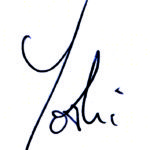You’ve heard of the non-apology apology, right? It’s the, “I’m sorry if you were hurt by my actions.” (A word of rabbinic advice—avoid this type of apology as you endeavor to make teshuva during our upcoming High Holy Days. Better to say, “My actions, my words, and my behavior caused you pain and I am sorry for what I did.”)
This week’s Torah portion begins, seemingly, with a no-choice choice: Moses explains to the Israelites that God has put before them blessing (bracha) and curse (k’lala). They will receive blessings if they follow the commandments and curses if they deviate from them. It seems more like an intelligence test or possibly even an ethics exam than an actual chance to decide between two viable options.
The right answer is clear: Do the work. Follow the mitzvot. More simply: Be a mensch.
But, if we’re honest with ourselves, we understand that it really is a choice. We know—most of the time—the right thing to do, the moral thing, the kind thing. And then, more often than we care to admit, we consciously do the wrong thing, skirting our ethical duties, falling short of the mensch we are meant to be.
We should be thankful for God’s transparency. It’s a choice, to be sure, and sometimes a tough one. Doing the right thing can be hard. But the reward is clear, right there in our Torah: Blessing, the experience of God’s favor—knowing that we acted in a way that is in accord with God’s desires for us.
That belief can make the hard part easier, the painful part more bearable.
It really is a choice, one that we must make each day.
I’m quite taken by that idea, the metaphor—if you find it easier to relate to—of God finding favor in our actions. It’s the feeling you get when you’ve made your mother or father proud or the feeling you get when a teacher tells you that you did a fine job on that paper. It’s the feeling of being blessed.
Every day. Every moment. It’s a real choice. Blessing or curse?
May we have the strength, the courage, and the support from loved ones, friends, and community to make the right choice every chance we get.
Shabbat Shalom,

Rabbi Yoshi
